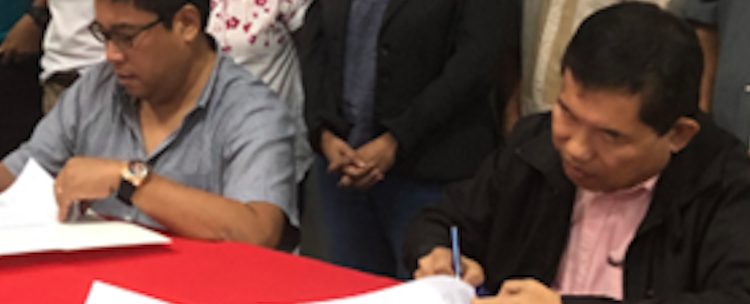Juan Pulhin uses multiple platforms to advance understanding and action around the human dimensions of climate change – from mentoring students, to advising local and national governments and informing global climate change assessment processes.
Juan is a professor and former dean at the College of Forestry and Natural Resources, University of the Philippines Los Baños and member of the National Academy of Sciences Technology (NAST), Philippines. At regional level, he contributes to the expert committee on capacity building of the Asia-Pacific Network for Global Change Research (APN), and at global level, he has been involved as leading and coordinating author of several Intergovernmental Panel on Climate Change (IPCC) assessment reports.
In the early 2000s he participated in START’s Assessments of Impacts and Adaptation to Climate Change (AIACC) program, and he kindly credits his involvement with AIACC for stirring his interest in climate change issues and building his capacity to conduct integrated climate change assessments at the local, national, regional and global scale.
We caught up with Juan to learn more about the impact of his involvement with START on his career.
START: How and when did your path cross with START?
JP: From 2002 to 2005, with colleagues from the Philippines and from Indonesia, I was part of a dynamic project team representing Southeast Asia in START’s Assessments of Impacts and Adaptation to Climate Change (AIACC) program.
Our project was an integrated assessment of climate change impacts, vulnerability and adaptation in the context of forests, watersheds and upland communities. It was an interdisciplinary project: from the start we looked at both biophysical and socio-economic dimensions. I mostly led the social dimension, trying to determine current and potential impacts of climate change on upland communities, and designing participatory tools for including the perspectives of the local stakeholders into the assessment process.
START: Would you say a project like AIACC was helpful in bridging global, regional, and local knowledge related to climate change?
JP: Yes, the assessment efforts under AIACC did not only inform our local realities. We were able to publish our findings and methods, so that they could be used beyond the region as well. That was especially important at the time, because scientists all around the world were still trying to understand the complexities of the issues related to climate change.
AIACC, and START as a whole, were also instrumental in promoting better representation of scientists from Africa and Asia into the global assessment processes of the IPCC. There was a deliberate effort among AIACC leadership to nominate scientists from Africa and Asia to participate in the IPCC processes.
And this is how I got involved with the IPCC’s fourth Assessment Report, and subsequently the fifth and sixth reports as well.
Had it not been for my participation in the AIACC project, I would not have had the opportunity to be part of the IPCC process, and this is probably the case for many other African and Asian scholars as well.

START: Do you see your work having long-lasting impact?
JP: Yes, in many ways. One of the ways I see my work having an impact, is through the students I mentor. I currently supervise 14 graduate and post-graduate students. Mentoring is about steering students’ interest and assisting them pursue a career along that line to help achieve their best professional potential.
Another way I see my work having an impact is through the collaboration with the government. Together with the two other AIACC colleagues, I have provided inputs to the 2009 climate change law, and we continue to advise the government as a member of the National Panel of Technical Experts of the Philippine Climate Change Commission. We also work with local government units in preparing local climate change action plans and in trying to institutionalize some of the interventions that came to light through our research.
At regional level, I participate as an invited expert in the capacity development committee of the Asia-Pacific Network for Global Change Research (APN), and at global level I am involved with the IPCC. I can really say that my work is multi-scalar, ranging from my own institution, to local and national government, to regional and international processes.

START: Is there anything that is unique about your START experience?
JP: The AIACC project was quite unique at that time, because it provided an almost “complete package”. You submitted a proposal, but you were not left on your own after the approval. During the implementation, the program’s capacity building component enabled us to work with colleagues from other disciplines, and nurtured the flexibility needed to be innovative.
I particularly appreciated how the program encouraged multi-stakeholder and action-oriented research. And I also appreciated the support in producing knowledge outputs, such as books, journal articles and working papers.
The AIACC program was a really great investment that generated many outputs and impacts, probably beyond what anybody could have conceptualized at the start of the journey.
START: Any additional thoughts as a parting shot?
JP: I would like to express once again my sincerest gratitude to START for not only investing in my own career, but building the capacity of southern countries, and providing opportunities for southern scholars to voice out their experience and insights into global arenas such as the IPCC while contributing not only to climate change science but also policy and practice.





